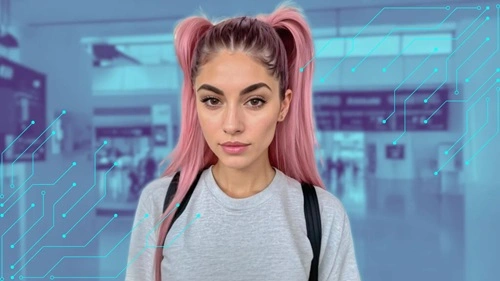Yes, AI influencers are legal in India, as there are currently no laws specifically prohibiting the use of AI-generated virtual influencers. However, their operations and content are subject to existing laws governing advertising, intellectual property, data protection, and online conduct.
What Are AI Influencers?

AI influencers are virtual personas created using artificial intelligence to engage with audiences, promote brands, or provide content online. They can simulate human behavior, appearance, and interactions, making them effective tools for marketing and entertainment.
Legal Framework Governing AI Influencers in India
While there are no specific laws for AI influencers, they are subject to various legal and regulatory provisions applicable to digital platforms, advertising, and intellectual property.
1. Advertising Standards
- The Consumer Protection Act, 2019:
- AI influencers endorsing products or services must comply with the provisions of the Consumer Protection Act.
- Misleading advertisements, including those promoted by AI influencers, are punishable with penalties.
- ASCI Guidelines for Influencer Advertising in Digital Media:
- The Advertising Standards Council of India (ASCI) mandates that influencers, including virtual ones, disclose paid partnerships with clear labels like #Ad or #Sponsored.
- AI influencers must ensure transparency to avoid deceiving consumers.
2. Intellectual Property Rights (IPR)
- Copyright:
- The creators of AI influencers retain copyright over their design and content. However, disputes may arise if AI-generated content unintentionally infringes on existing copyrights.
- Trademark:
- Brands collaborating with AI influencers must ensure that their trademarks are not misused or associated with unauthorized content.
- Moral Rights:
- Ethical concerns may arise if an AI influencer’s persona or content closely mimics a real person without consent.
3. Data Protection and Privacy
- Information Technology (IT) Act, 2000:
- AI influencers collecting or processing user data must adhere to the IT Act and ensure data security and privacy.
- Proposed Data Protection Bill, 2022:
- The upcoming legislation emphasizes accountability for platforms handling personal data. AI influencers may need to comply with these rules if they process or influence decisions based on user data.
4. Liability for Harmful Content
- Defamation:
- If an AI influencer disseminates defamatory content, the creators or operators may be held liable under Section 499 of the Indian Penal Code (IPC).
- Hate Speech and Offensive Content:
- Content violating provisions of Section 153A (promoting enmity) or Section 295A (insulting religious sentiments) of the IPC is punishable, even if created by AI.
- Intermediary Liability:
- Platforms hosting AI influencers must comply with the IT (Intermediary Guidelines and Digital Media Ethics Code) Rules, 2021, to avoid liability for harmful or unlawful content.
Ethical Considerations and Challenges
- Transparency:
- AI influencers should clearly indicate their virtual nature to avoid misleading users.
- Accountability:
- Determining who is legally accountable for an AI influencer’s actions—whether the creator, operator, or collaborating brand—can be complex.
- Cultural Sensitivity:
- AI influencers must be programmed to respect cultural, social, and legal norms to avoid controversies.
Recent Developments
- Emergence of Virtual Influencers:
- AI influencers are gaining popularity in India, especially in sectors like fashion, lifestyle, and technology.
- Global Precedents:
- Countries like the US and Japan have started exploring regulations for AI influencers, which may influence India’s approach in the future.
- Focus on Responsible AI:
- Indian policymakers and industry stakeholders are emphasizing ethical AI practices, which may eventually extend to virtual influencers.
Conclusion
AI influencers are legal in India and operate within the existing legal framework for advertising, content, and digital platforms. While they present exciting opportunities for innovation and engagement, creators and brands must ensure compliance with laws governing transparency, intellectual property, and data protection. As AI continues to evolve, India may introduce specific regulations to address the unique challenges posed by AI influencers in the digital ecosystem.
Hina Abbasi is Editor and a passionate sports and entertainment content writer at WinnersMaze.com. Hina’s expertise spans across a wide range of sports, and interest in many TV shows allowing her to deliver insightful analysis and compelling stories that resonate with readers.

